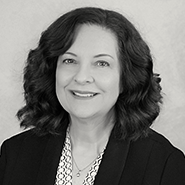Recent Changes to Florida’s “Mobile Opportunity by Interstate Licensure Endorsement (MOBILE) Act” for Health Care Practitioners
July 28, 2025
Last year, we reported on Florida’s adoption of the “Mobile Opportunity by Interstate Licensure Endorsement (MOBILE) Act” (Section 456.0145, Florida Statutes), which created a consistent regulatory framework for licensure by endorsement for all health care professions in Florida. Licensure by endorsement is an alternative to licensure by examination which allows a health care practitioner to become licensed in Florida based on holding a substantially equivalent license in another state, the District of Columbia or a U.S. territory, if all requirements are met. During the 2025 Florida legislative session, two changes were made to the MOBILE Act through House Bill 1299 which will make licensure by endorsement more widely available. The changes took effect July 1, 2025.
The MOBILE Act originally included required that applicants for licensure by endorsement must have actively practiced their profession for at least three of the four years immediately preceding submission of the application. HB 1299 reduced the number of years in practice required for licensure by endorsement to two years during the four-year period immediately preceding submission of the application. This change will result in many more people being able to utilize this pathway.
The MOBILE Act originally said that a person who has been reported to the National Practitioner Data Bank (NPDB) is ineligible for licensure by endorsement, unless he or she has successfully appealed to have the report removed. HB 1299 modified this provision to allow a person with an NPDB report to be considered for licensure by endorsement if the report resulted from conduct that would not constitute a violation of any Florida law or rule. In that case, the applicable professional board (e.g., the Board of Medicine), or the Department of Health in the case of professions that do not have a board, has the discretion to:
- Approve the application;
- Approve the application with restrictions on the scope of practice;
- Approve the application with a period of probation and subject to conditions (such as requiring the applicant to submit to treatment, attend continuing education or submit to re-examination); or
- Deny the application.
This change will make the option to apply for licensure by endorsement available to many people who were previously ineligible because of an NPDB report. However, if the NPDB report is for conduct that constitutes a violation of Florida law or rule, the person will still be ineligible, unless he or she has successfully appealed to have the report removed.
Other than as noted above, all requirements of the MOBILE Act remain in effect. A person is ineligible for licensure by endorsement if he or she:
- Has a complaint, allegation or investigation pending before a licensing entity in another state, the District of Columbia or a possession or territory of the United States;
- Has been convicted of, or pled nolo contendere to, any felony or misdemeanor related to the practice of a health care profession; or
- Has had a health care provider license revoked or suspended by another state, the District of Columbia or a territory of the United States, or has voluntarily surrendered any such license in lieu of having disciplinary action taken against the license.
Also, an applicant:
- Must hold an active, unencumbered license in another state, the District of Columbia or a U.S. territory;
- Must have obtained a passing score on the applicable national examination or hold the applicable national certification;
- Must not be the subject of a disciplinary proceeding in any jurisdiction, or by the Department of Defense, for reasons related to the practice of the profession;
- Must not have had disciplinary action in the five years immediately preceding the date of the application; and
- Must meet applicable financial responsibility and background screening requirements.
If you have questions about health care licensure, please reach out to your Dinsmore health law attorney

